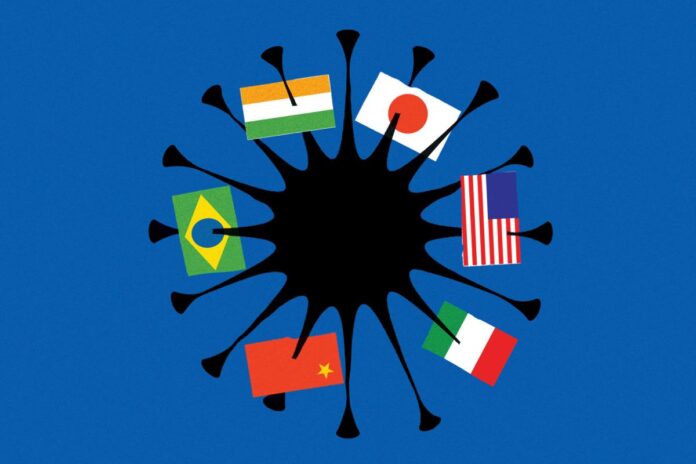Author: Francis Fukuyama
Affiliation: Stanford University
Organization/Publisher: Foreign Affairs
Date/Place: July/August, 2020/USA
Type of Literature: Journal Article
Word Count: 2640
Link: https://www.foreignaffairs.com/articles/world/2020-06-09/pandemic-and-political-order
Keywords: State, Political Order, Leadership, Pandemic, and Democratic Liberalism
Brief:
In this article, Fukuyama explains the potential positive and negative effects of the Corona pandemic on states and political orders for the foreseeable future. Above all, he expresses a “flexible gradual concession” of his liberal perspective that he has long advocated for since publishing his famous article, “The End of History?”, especially concerning the role of the state in the post-Cold War era. In the fields of both international relations and economy, Liberals have believed (since the 1980s) in a lesser role for the state as the main actor at the international scene in favor of other actors such as multinational corporations, international organizations, individuals; and to make wider room for free markets and the private sector internally instead of giving a blank check for government policies to intervene in the economy, as one of the central pillars of liberal ideas and post-Cold War liberal world order, and which Fukuyama has been a staunch advocate for. In light of the current world transformations that the pandemic has accelerated, Fukuyama believes that it is hard to deny the need for government intervention to overcome the deteriorating global political and economic situation caused by COVID-19 and the accumulations that preceded it. For instance, he provides a comparative example between the $1 billion USD amount announced by Twitter ( a private corporation) to contribute to the fight against the pandemic and the allocation of $2.3 trillion provided by Congress for the same purpose. Furthermore, Fukuyama denies the inevitable relationship that has been established recently between the pattern of the political order (democratic /authoritarian) and the level of control and response to the pandemic. The response of democratic regimes was not necessarily better than the authoritarian ones towards the pandemic or vice versa (the US versus China). Some democracies did well, while others did not (Germany vs. the US), and this applies to authoritarian regimes (China vs. Russia). According to the author, the factors responsible for a successful response to the pandemic were the combination of three factors: state capacity, social confidence, and efficient and effective leadership. As for the potential effects of the pandemic on states and political orders, Fukuyama places before the reader two images of the future, one gloomy, and the other less brilliant, but both reflecting the hard situation that the world is going through today, and the liberal idea as well. By going back to the lessons of history, it is easy to imagine the pessimistic consequences of this pandemic as reinforced by the hostile trends of the global liberal order that have become apparent recently, such as nationalist, populist and xenophobic tendencies, as well as illiberal regimes, some of which took advantage of this crisis to declare emergencies granting them more authority, directing the attention of its peoples from internal problems and further distancing their countries from democracy (Hungary, the Philippines). Some greedy states also took advantage of the downside impacts of the crisis on their neighbors, and moved towards destabilizing their favorite goals abroad or creating new facts on the ground in conflict areas. Democratic Western Europe was not far from this gloomy picture. Instead of its states cooperating constructively for their common interests, they tended to turn inward, compete with each other, and made their rivals political scapegoats for their own failures. According to Fukuyama, the pandemic crisis will severely affect poor states with crowded cities and weak public health systems (India, for example). This crisis will crush more hopes there, increase public anger, immigration, demagoguery and political corruption, and reinforce the apocalyptic visions and the prosperity of its sects which believe the end of the world is near and which usually arise because of anxiety caused by long-standing turmoil; fascism likewise emerged in the past from the disarray caused by World War I, the author saying it is a classic recipe for revolution and disorder as well. On the other hand, the author presents less pessimistic possibilities that may emerge from the pandemic crisis using the laboratory of history as well. The pandemic can lead to the revitalization of liberal democracies as the Great Depression did in the early 1930s, as the large shocks often push political orders to review their faults and pursue structural reforms. The pandemic has contributed to exposing demagogical regimes that ignore professionalism and experience (Bolsonaro-Brazil) and undermining the legitimacy of others that have long struggled to hide their weakness and the lack of confidence of their people (Putin-Russia). The pandemic revealed the weaknesses of institutions, emphasized the government’s ability to provide solutions, reinforced the sense of the need for social solidarity, and weakened extremist neoliberal currents hostile to any governmental role in the economy. The crisis may lead to renewed international cooperation with the contribution of scientists and public health officials pushing this direction of multiple action to promote common interests. Finally, Fukuyama stresses the trilogy of “the state capacity, social confidence, and competence of leaders” for countries in order to overcome the impacts of this pandemic, regretting deeply that the US has an incompetent and divisive leader at this crucial period. He expects that the post-Covid-19 era will be a hard era for the US, that even if Biden and the Democrats win the upcoming presidential election, “they would inherit a country on its knees” that needs many years to rebuild. However, as a liberal theorist, Fukuyama does not give up hope in the ability of American democracy and capitalism in transformation and adaptation during and after the big shocks, as it has proven throughout history. However this time, it needs a magic formula to overcome the crisis and rise again.
By: Djallel Khechib, CIGA Senior Research Associate




